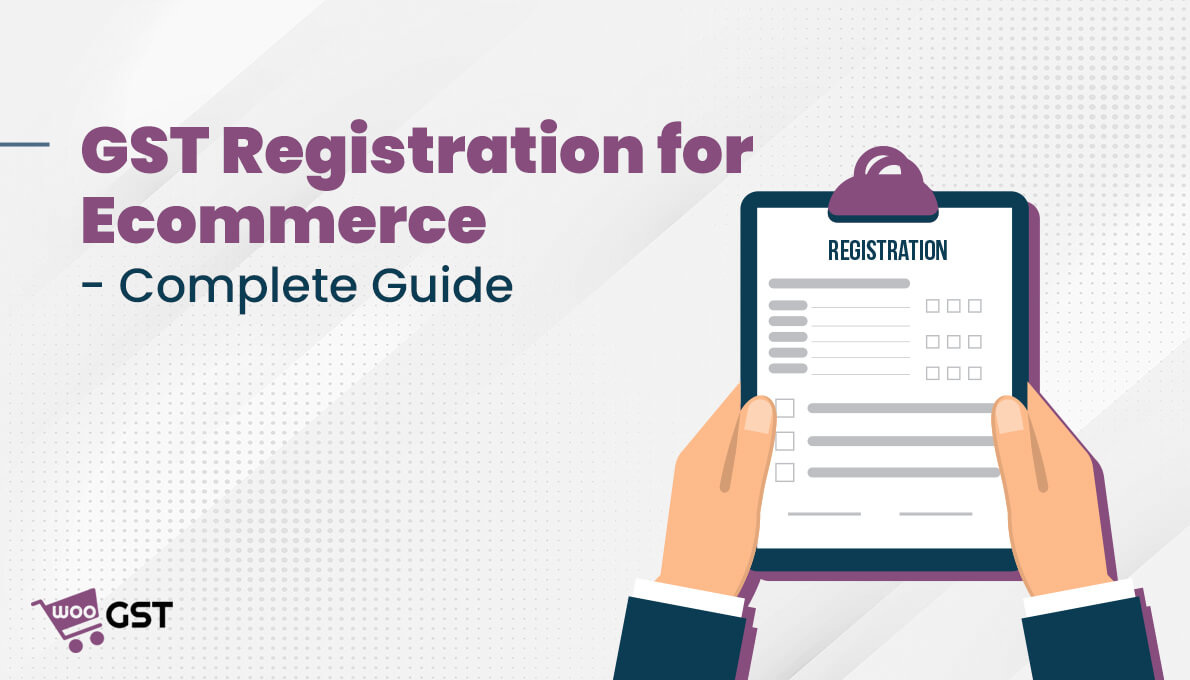
E-commerce has changed the way of doing business in today’s world. With the rising number of online shoppers, there are more and more businesses going and growing online. Among all the ease that online businesses have in India, here we are going to discuss one i.e awarded to us called the GST registration for eCommerce.
Since the 1st of July, 2017 all the eCommerce sellers or vendors who want to sell their products across the country are supposed to register for the Goods and Service Tax (GST). The exceptions to this are the goods or services under exempt categories.
Mandatory GST registration for eCommerce Suppliers
GST for eCommerce sellers is mandatory when the turnover lowers the limit of Rs. 40/20/10 lakhs. This turnover limit is different for the suppliers of goods and the suppliers of services. For the suppliers of the goods, there is an aggregate turnover limit of ₹40 lakhs or ₹20 lakhs. However, for the suppliers of the services the GST registration is important only if they cross the turnover limit of ₹10 lakhs.
Check out the complete GST registration for eCommerce checklist of the required documents here – GST Registration Checklist
TDS and TCS under GST
TDS and TCS are the abbreviated terms for the tax deduction at source and tax collection at source. One might be aware of these terms under the Income tax law. Under GST, these terms came into effect on 1st October 2018. What are the tax deduction and tax collection at source under the GST for eCommerce sellers?
- Tax Deduction at source –
TDS refers to the tax which is deducted when the buyer like government departments makes payments for goods or services under a business contract. The rate of the TDS to be deducted under GST on the payments made to the seller of taxable goods or services is 2% (1% CGST+1% SGST or 2% IGST). The person/entity will be liable to pay TDS if the supply exceeds the amount of ₹2.5 lakhs.
- Tax collection at source –
TCS refers to the tax which is collected by the eCommerce operator when a seller supplies some goods or services through its website and also the payment for that offer is collected by the eCommerce operator. A whole new section was inserted in the CGST law to get the TCS under GST. Through TCS any eCommerce dealers or traders would get the payment after a deduction of 1% tax (0.5% CGST+ 0.5% SGST or 1% IGST).
Multiple registrations under GST for eCommerce Sellers
The eCommerce sellers, especially the suppliers of the goods have to stock those goods in multiple distant warehouses. This creates another place of business that is to be registered under GST too. For such instances, the law for Multiple Registrations under GST was introduced. The provision under this law was made as
Every person needs to apply for GSTIN in every State or Union territory during which he/she is at risk of registering.
Also for the two different businesses operated under the same entity, the provision was made regarding the GST registration for eCommerce as
A person carrying on business with several business branches or verticals in a single State or Union territory is also granted a distinct registration for every different business branch or vertical subject to some specific conditions and rules.
Electronic Invoice System and Registration
Every supplier is liable to provide the supply invoice that is compliant with GST. To make it easy, the Government had introduced the electronic invoice system to autogenerated invoices compliant with the GST for eCommerce sellers. This System is for GST-registered persons for uploading all the B2B invoices to the Invoice Registration Portal (IRP). The IRP then generates and returns a singular Invoice Reference Number (IRN), digitally signed e-invoice and QR code to the user.
To register for an e-invoice system for GST the minimum turnover limit is ₹20 crores. Enters the WooCommerce GST Plugin that provides the GST configuration for your WooCommerce store for free. As WooCommerce brings ease in taking your business online, the WooCommerce tax rate plugin brings ease to the tax calculations. It autogenerates the e-invoices without limiting the minimum turnover or the B2B business mode.
Want to know more about this plugin? Read – Why One Should Switch To Smart Invoicing with WooCommerce GST Plugin
All Rights Reserved. © 2025